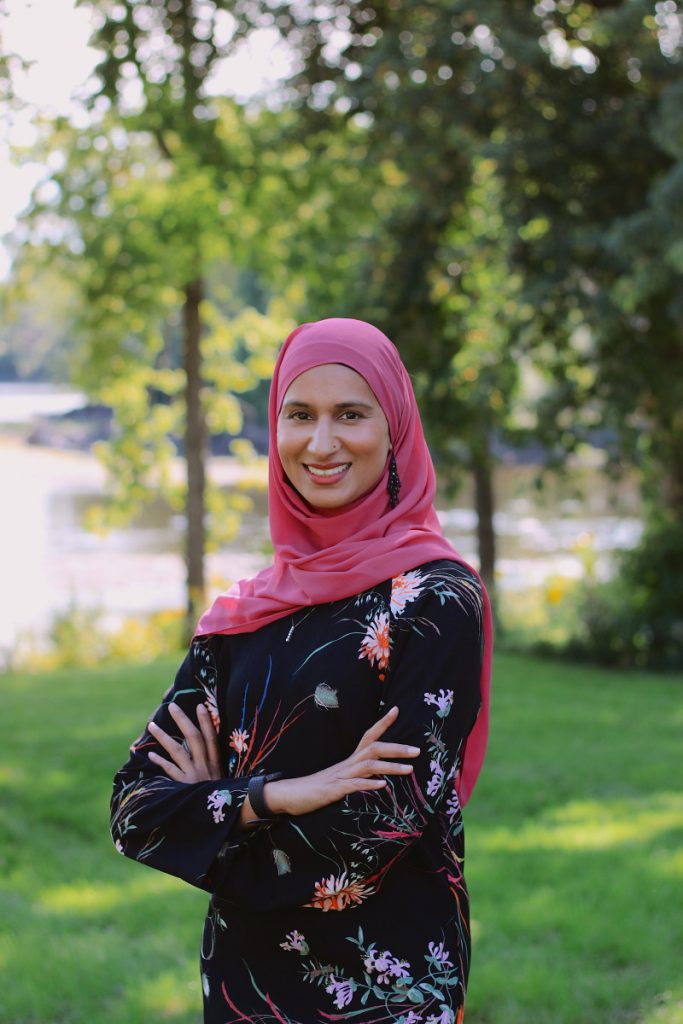
James Buckser
Staff writer
Nausheena Hussain works to help build leadership skills in women.
“I really feel that women, if we build them up and build up their capacity, they can really build up their nonprofits and help their communities and really transform, making the world a better place,” Hussain said.
She will speak at Chautauqua at 2 p.m. today in the Hall of Philosophy as a part of the Week Eight theme of the Interfaith Lecture Series, “Freedom of Religious Expression.”
Hussain is the founder and principal of Nissa Consulting, which takes its name from the Arabic word for woman and provides services to Muslim-led nonprofit groups and philanthropy.
Describing her company as “basically a one-person show,” Hussain said she uses the title principal to signify that she is the owner of the company and the decision-making lies with her.
Hussain said she first got involved in nonprofit work while working for a civil rights organization, seeing that many of the civil rights violations were happening against Muslim women.
“I felt that there was a bigger purpose in helping women lead, and so I started a nonprofit organization that had three main program goals,” Hussain said. “One was around changing the narrative around who Muslim women are, the second one was around leadership development, and then a third one is around civic engagement.”
Hussain co-founded Reviving the Islamic Sisterhood for Empowerment in 2016, serving as its leader until 2022. During one of the organization’s programs, she said she realized there was “a strong need to help Muslim women figure out how to strengthen their infrastructure and build their capacity for their nonprofit.”
“Because of the success I had with my nonprofit, I really wanted to share that knowledge, and help other Muslim women be able to really grow their own nonprofit organizations and be able to give back,” Hussain said. “This is my way of giving back, is by having this sort of consulting arm of sharing that knowledge.”
Hussain is also the co-founder and a board member of the Brooklyn Park Islamic Center.
“Almost 10 years ago we realized the Muslim population in the city of Brooklyn Park was really growing, and many of us had to leave the city in order to find a place to worship,” Hussain said. “I remember just thinking like, how I can drive down the street and pass three or four different types of churches, and I was almost jealous – what is it like to have your place of worship walking distance from you? That’s got to be really powerful in building community.”
Hussain said a group of families got together and started to pool money, “to build a community first and the center second.” Now, the group has bought a building.
“We have this Brooklyn Park Islamic Center located literally a mile and a half away from my house. I could walk to it,” Hussain said. “It’s been nice to have a prayer space and meeting space.”
In her talk, Hussain said she will start by describing what freedom of expression means “in the context of what’s happening in the United States,” and looking at it within her own experiences and the Muslim community.
“I’m hoping that I can get to be able to tell stories of just how Muslims in Minnesota have been able to express their religious beliefs in the context of what the Constitution gives us a right over,” Hussain said, “as well as talk about when those freedoms have been sort of violated and challenged.”
Hussain said she also wants to discuss working with other marginalized communities and other faith groups, to “be able to preserve that freedom of expression,” give examples of positive stories, and highlight the importance of freedom of expression and its importance to our society.
Hussain hopes attendees of her talk will gain a better understanding of her experiences and how she navigates the world “being a Muslim, Indian, brown, Hijab-wearing woman, but also having a very American identity, living in the Midwest and being in the nonprofit sector.”
Relating to other people’s lived experiences invokes empathy, she said.
“Everybody should really be able to practice that form of empathy,” Hussain said, “so that we can build better bridges of understanding and continue to have a very pluralistic and democratic society.”




